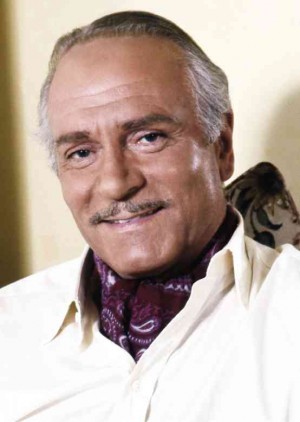On local TV-film screens, there’s a constant battle being waged by proponents of “personality” acting on the one hand, and “character” portrayals on the other. At the moment, exponents of “personality” are definitely winning, and this sad reality is to be regretted, because it’s a major reason why local TV-film performances are lacking in believability and depth.
In fact, it can even be said that the local entertainment industry’s very definition of acting, since way back when, has been based on beautiful people playing, not other people, but mere variations on their real or stellar selves.
Thus, there was a lyrical, teary-eyed “Carmen Rosales” film type, a reliably noble and gallant “Rogelio de la Rosa” screen persona, a “Fernando Poe Jr.” defender of the underdog, a sexy “Merle Fernandez” or “Divina Valencia” constantly taking all her clothes off—etc.!
Adjustments
Those days aren’t over, by the way: Today’s stars may be new and young, but many of them still go the “signature screen persona” route, because they think that’s what makes their fans happy. Thus, they end up playing roles that require only minor adjustments on the “image” that initially clicked with viewers, and made them popular in the first place.
They’re wrong, of course. When stars practically play themselves over and over again, viewers get bored and sated—which is why most stars these days don’t have a long shelf life.
So, why do actors get stuck in this unproductive rut? Because they’re too lazy or shallow to change! They rely mostly on their exceptionally good looks, because that’s really all they have going for them.
That’s such a pity, because they’re missing out on what acting should really be about—not the projection of a star’s personality, but the star “forgetting” himself as completely as possible, so that he can believably portray another human being—the character that’s been assigned to him.
In fact, the very definition of acting should be: the believable and felt portrayal of character—a far cry from the “personality” acting mode preferred locally.
Some stars won’t be able to manage this big shift in priorities, context and “attack,” because they’re not sensitive to what makes other people tick. But, for those who are determined enough to make the big change, it can be amazingly challenging and fulfilling!
In fact, even great icons of acting like Laurence Olivier say that it’s a passion that continues to excite them to the end of their thespic days—because each character is entirely different from others, so there’s a lot of learning and analysis to be done with each and every role!
We hope that some of our actors will take their cue from what the acting greats have said, and graduate from lazy “personality” performance to the much more challenging “character” mode. Only when they make that key shift will they have the right to call themselves actors, in the real meaning and spirit of the word!
